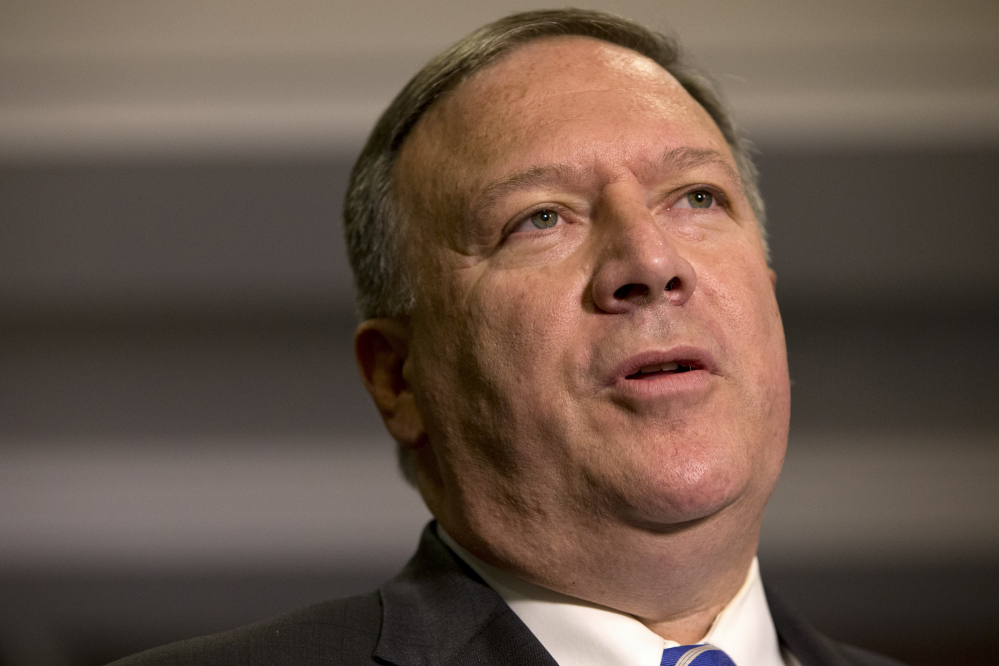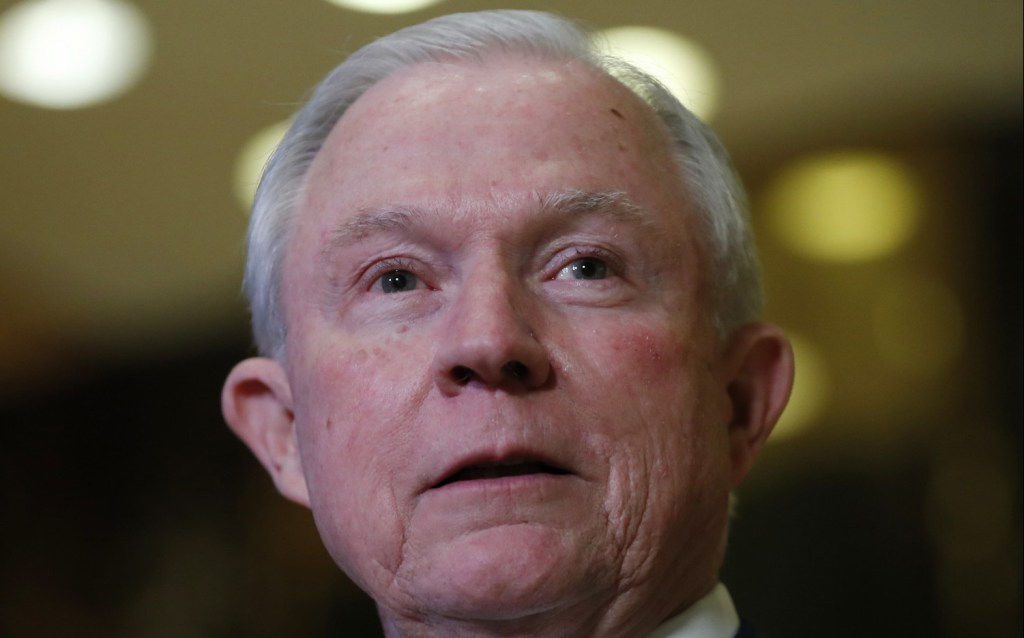NEW YORK — President-elect Donald Trump signaled a sharp rightward shift in U.S. national security policy Friday, naming Alabama Sen. Jeff Sessions for attorney general, Kansas Rep. Mike Pompeo to head the CIA and former military intelligence chief Michael Flynn as his national security adviser.
All three have been fierce critics of President Obama’s handling of terrorism and international relations. In tapping Sessions and Flynn, Trump is also rewarding loyalty from two of his most ardent supporters during the presidential campaign.
Trump is a foreign policy novice and his early moves on national security are being closely watched both in the U.S. and overseas. Sessions and Pompeo would both require Senate confirmation before assuming their designated roles; Flynn would not.
Flynn, who has called Islam a “political ideology” that “hides behind being a religion,” will work in the West Wing and have frequent access to Trump as he makes national security decisions. Trump said in a statement Friday that Flynn would be “by my side as we work to defeat radical Islamic terrorism, navigate geopolitical challenges and keep Americans safe at home and abroad.”
Like Trump, Flynn has called for the U.S. to work more closely with Moscow. But his warmth toward Russia has worried national security experts, particularly after he traveled to Moscow to join Russian President Vladimir Putin at a celebration for RT, a Kremlin-backed television channel. Flynn said he had been paid for taking part in the event and brushed aside concerns that he was aiding a Russian propaganda effort.
Sessions was the first senator to endorse Trump, rallying behind the Republican’s hardline immigration policies. On Friday, Trump called Sessions “a world-class legal mind.”
But the Alabama lawmaker could face obstacles in his confirmation hearing, even with Republicans in control of the Senate. He withdrew from consideration for a federal judgeship in 1986 after being accused of making racist comments while serving as a U.S. attorney in Alabama, including calling a black assistant U.S. attorney “boy” in conversation. Sessions denied the accusation.
Sessions has tangled with the past two Democratic attorneys general on whether terrorism suspects deserve American constitutional rights in civilian court and on the planned closure of the Guantanamo Bay detention facility. He’s also been protective of the attorney general’s right to refuse a legally unsound directive from the president.
Maine’s Republican U.S. Sen. Susan Collins issued a statement Friday saying, “Senator Jeff Sessions and I came to the Senate the same year, so I have known him for nearly 20 years. He is an individual who works hard, believes in public service, and acts with integrity. As a former U.S. Attorney and former Alabama Attorney General, Senator Sessions is well qualified and would serve our country well as United States Attorney General.”
A spokesman for independent Sen. Angus King of Maine said, “Senator King looks forward to closely reviewing (Sessions’ and Pompeo’s) records as they undergo the confirmation process before the Senate. Until then, he will withhold comment on their nominations.”
Pompeo is a conservative Republican and a strong critic of Obama’s nuclear deal with Iran. A three-term congressman, he graduated from the United States Military Academy at West Point and from Harvard Law School.
Pompeo has said that Muslim leaders are “potentially complicit” in terrorist attacks if they do not denounce violence conducted in the name of Islam. “They must cite the Quran as evidence that the murder of innocents is not permitted,” he said in a 2013 House floor speech.
A member of the House intelligence committee, Pompeo said former National Security Agency contractor Edward Snowden should face the death penalty for taking and releasing secret documents about surveillance programs in which the U.S. government collected the phone records of millions of Americans.
Trump called Pompeo “an unrelenting leader for our intelligence community to ensure the safety of Americans and our allies.”
The president-elect is still weighing a range of candidates for other leading national security posts. His choices for secretary of state are said to include former New York City Mayor Rudy Giuliani, former U.S. Ambassador to the United Nations John Bolton, Tennessee Sen. Bob Corker and South Carolina Gov. Nikki Haley, who met with Trump Thursday.
On Saturday, Trump plans to meet with retired Gen. James Mattis, a contender to lead the Pentagon. Mattis would require a congressional waiver to serve as defense secretary because he has not been out of uniform for the required minimum of seven years.
Trump planned the weekend meetings for his golf club in Bedminster, New Jersey, where he arrived late Friday afternoon. Others traveling there for discussions include 2012 Republican presidential nominee Mitt Romney, who lambasted Trump as a “con man” and a “fraud” in a stinging speech in March. Trump responded by repeatedly referring to Romney as a “loser.”
The two began mending fences after Trump’s victory when Romney called with congratulations.
Transition officials announced new teams that will interact with the State Department, Pentagon, Justice Department and other national security agencies as part of the government transition before his Jan. 20 inauguration.
For about a week after Trump’s victory, departments said they had not had any contact with the president-elect’s team.
Send questions/comments to the editors.



